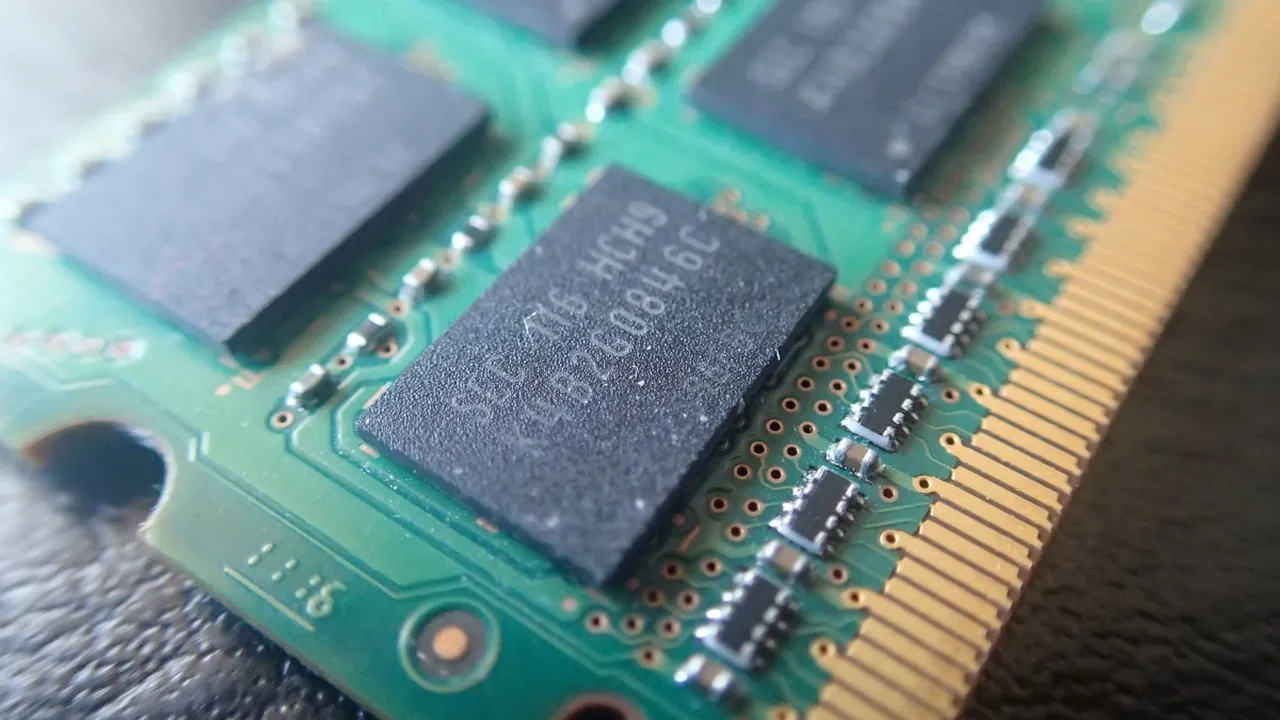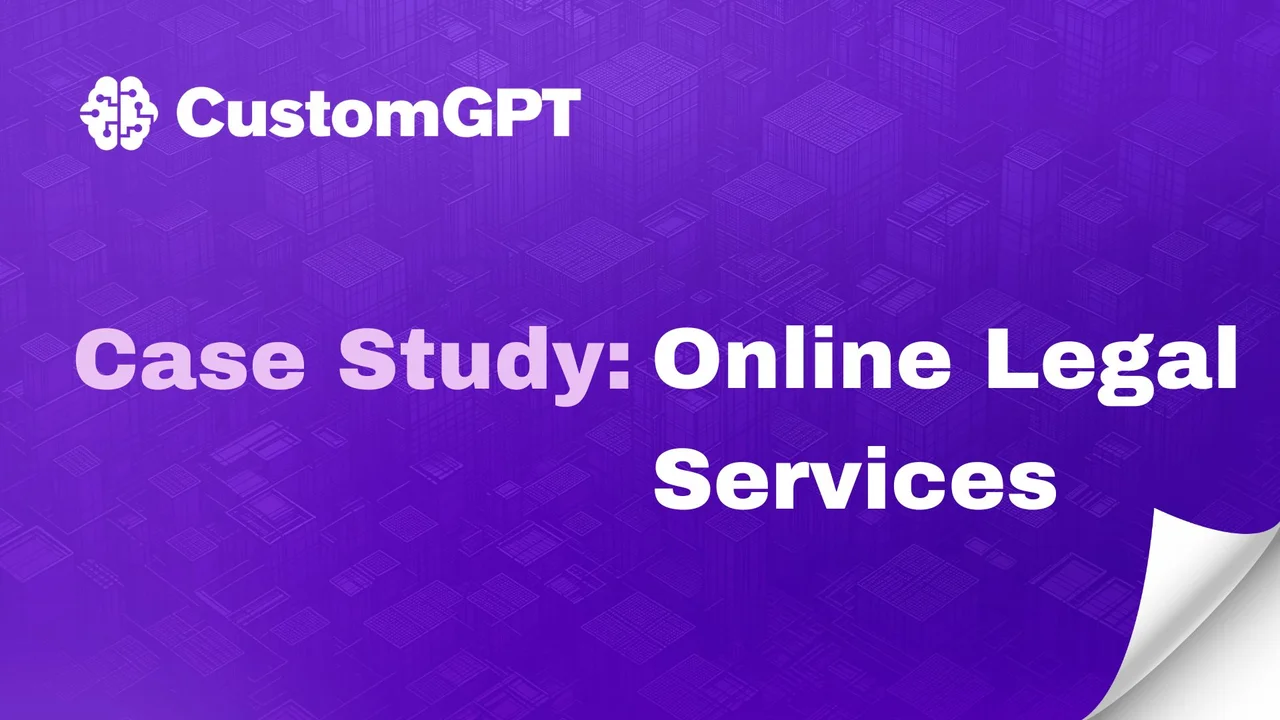Best Smart Devices for Financial Security
Discover smart devices that enhance financial security and prevent unauthorized access for seniors.

Best Smart Devices for Financial Security
Smart Password Managers and Biometric Security Devices
One of the biggest vulnerabilities in financial security is weak or reused passwords. Remembering dozens of complex passwords for banking, investments, and online shopping can be a nightmare. That's where smart password managers come in. These aren't just apps; some come with dedicated hardware for an extra layer of security, often integrating biometric features like fingerprint scanning.
Why Smart Password Managers are a Game Changer
Imagine only needing to remember one master password or use your fingerprint to access all your online accounts. Smart password managers generate strong, unique passwords for each site, store them securely, and automatically fill them in when you need them. This significantly reduces the risk of your accounts being compromised due to a data breach on one website.
Top Picks for Smart Password Managers and Biometric Devices
-
YubiKey 5 Series
Use Case: This is a physical security key that plugs into your computer's USB port. It provides strong two-factor authentication (2FA) for a wide range of services, including Google, Facebook, and many financial institutions. Instead of relying on SMS codes that can be intercepted, you simply touch the YubiKey to log in. It's incredibly secure and virtually phishing-proof.
Comparison: Unlike software-based 2FA, YubiKey offers hardware-backed security, making it much harder for attackers to gain access. It's durable and doesn't require batteries.
Price: Around $50-$70, depending on the model.
-
LastPass with YubiKey Integration
Use Case: LastPass is a popular password manager that can be enhanced with a YubiKey for an extra layer of security. You store all your passwords in LastPass, and then use your YubiKey as the second factor to unlock your vault. This combination offers both convenience and robust security.
Comparison: LastPass itself is a software solution, but integrating it with a hardware key like YubiKey elevates its security significantly. It's more user-friendly than managing individual YubiKeys for every service.
Price: LastPass Premium is around $36/year, plus the cost of the YubiKey.
-
1Password with Biometric Unlock
Use Case: 1Password is another highly-rated password manager that integrates seamlessly with biometric features on your devices, such as Touch ID or Face ID on Apple devices, or fingerprint scanners on Android and Windows. This means you can unlock your password vault with just a touch or a glance, making access both secure and incredibly convenient.
Comparison: While it doesn't use a separate physical key like YubiKey, its integration with device-level biometrics offers a high level of security for those comfortable with it. It's known for its user-friendly interface.
Price: Around $36/year for a personal plan.
Smart Home Security Systems for Physical Financial Document Protection
While much of our financial life is digital, important physical documents like deeds, wills, and even old bank statements still exist. A smart home security system can provide an excellent deterrent against physical theft and unauthorized access to these sensitive papers.
How Smart Home Security Protects Your Valuables
These systems go beyond just deterring burglars. They can include smart safes, motion sensors, door/window sensors, and even smart cameras that allow you to monitor your home remotely. If someone tries to access a sensitive area where you keep financial documents, you'll get an instant alert on your phone.
Top Picks for Smart Home Security for Document Protection
-
SimpliSafe Home Security System
Use Case: SimpliSafe offers a comprehensive, easy-to-install wireless security system. You can place entry sensors on cabinets or drawers where you keep important documents, and motion sensors in rooms. If triggered, the alarm sounds, and you receive immediate notifications. You can also add indoor cameras to monitor specific areas.
Comparison: SimpliSafe is known for its DIY installation and no-contract monitoring options. It's less intrusive than wired systems and highly customizable.
Price: Starter kits range from $200-$500, with optional professional monitoring plans starting around $15/month.
-
Arlo Pro 4 Spotlight Camera System
Use Case: While primarily an outdoor camera, Arlo Pro 4 can be used indoors to monitor specific areas like a home office or a safe. Its high-resolution video, spotlight, and two-way audio allow you to see and communicate with anyone in the monitored area. You get alerts for motion detection, and recordings are stored in the cloud.
Comparison: Arlo focuses heavily on high-quality video surveillance. It's great for visual monitoring of specific areas where financial documents might be stored, offering clear evidence if something happens.
Price: Single cameras start around $200, with multi-camera packs available. Cloud storage plans are extra.
-
SentrySafe SFW123CS Fire and Water Safe with Smart Features
Use Case: This isn't a 'smart' device in the traditional sense of being connected to Wi-Fi, but it's a smart choice for physical document protection. It's a fire and water-resistant safe that can be bolted down. Some models come with digital keypads, making them more secure than traditional key locks. While not 'connected,' it's a crucial physical barrier.
Comparison: This is a physical security device, not a digital one. It's essential for protecting documents from environmental damage and physical theft, complementing digital security measures.
Price: Around $200-$400, depending on size and features.
Smart Routers and Network Security Devices
Your home internet network is the gateway to your digital financial life. A compromised router can expose all your connected devices to threats. Smart routers and dedicated network security devices offer advanced features to protect your online activities.
Boosting Your Network's Defenses
These devices often include built-in firewalls, intrusion detection systems, and parental controls (which can also block malicious sites). Some even offer VPN capabilities or automatically update their security definitions to protect against the latest threats. They create a secure tunnel for your financial transactions.
Top Picks for Smart Network Security
-
Gryphon Guardian Mesh WiFi Router
Use Case: Gryphon Guardian is designed with security in mind. It offers robust parental controls, but more importantly, it includes malware protection, intrusion detection, and ad blocking at the network level. This means every device connected to your Wi-Fi is protected from malicious websites and phishing attempts, which are common threats to financial security.
Comparison: Unlike standard routers, Gryphon prioritizes security features, offering a more proactive defense against online threats. It's also a mesh system, providing excellent Wi-Fi coverage.
Price: Around $150-$200 for a single unit, or more for a mesh system.
-
Bitdefender Box 2
Use Case: Bitdefender Box 2 is a dedicated network security device that sits between your modem and router. It scans all incoming and outgoing traffic for malware, phishing attempts, and other cyber threats. It protects every device on your network, including smart home devices that might not have their own security software.
Comparison: This is a standalone security appliance, offering a comprehensive layer of protection for your entire home network, regardless of the devices connected. It's a 'set it and forget it' solution for many.
Price: Around $150-$200, plus an annual subscription for ongoing security updates (around $70/year).
-
Eero Pro 6E Mesh WiFi System
Use Case: While primarily known for its excellent Wi-Fi coverage, Eero systems offer advanced security features through their 'Eero Secure' subscription. This includes threat detection, ad blocking, and content filtering, which can help prevent access to fraudulent websites. It's a great option if you want strong Wi-Fi and integrated security.
Comparison: Eero focuses on ease of use and strong Wi-Fi performance, with security as an add-on service. It's ideal for those who want a simple, reliable network with good security features.
Price: A 3-pack is around $500-$700, with Eero Secure subscription starting around $3/month.
Smart Identity Theft Protection Devices and Services
Identity theft is a growing concern, and it can have devastating financial consequences. While not always 'devices,' many smart services offer proactive monitoring and alerts to protect your identity and financial accounts.
Proactive Defense Against Identity Theft
These services monitor your credit reports, public records, and even the dark web for suspicious activity. If your personal information is found where it shouldn't be, they alert you immediately, allowing you to take action before significant damage occurs. Some even offer restoration services to help you recover if your identity is stolen.
Top Picks for Identity Theft Protection
-
LifeLock by Norton
Use Case: LifeLock offers comprehensive identity theft protection, monitoring your credit, bank accounts, and even public records for suspicious activity. They send alerts via email or text if anything unusual is detected. They also offer identity restoration services and insurance coverage for stolen funds.
Comparison: LifeLock is one of the most well-known and comprehensive services, offering a wide range of monitoring and recovery features. It's a subscription-based service, not a physical device.
Price: Plans range from $10-$30/month, depending on the level of coverage.
-
IdentityForce by TransUnion
Use Case: IdentityForce provides similar services to LifeLock, with a strong focus on credit monitoring (all three bureaus), dark web monitoring, and change of address alerts. They also offer a mobile app for on-the-go alerts and a robust identity restoration team.
Comparison: IdentityForce is often praised for its excellent customer service and comprehensive monitoring. It's another subscription service that acts as a digital guardian for your identity.
Price: Plans range from $18-$30/month.
-
Credit Karma (Free Monitoring)
Use Case: While not a full-fledged identity theft protection service, Credit Karma offers free credit monitoring from TransUnion and Equifax. It alerts you to significant changes on your credit report, which can be an early sign of identity theft. It's a great starting point for basic financial security monitoring.
Comparison: This is a free service, so it doesn't offer the same level of comprehensive monitoring or restoration services as paid options. However, it's an excellent tool for staying on top of your credit health without any cost.
Price: Free.
Smart Safes and Secure Storage Devices for Digital Assets
For those with significant digital assets, like cryptocurrency or highly sensitive digital documents, a smart safe or a secure hardware wallet can provide an unparalleled level of protection.
Protecting Your Digital Treasures
These devices are designed to be offline or highly encrypted, making them extremely difficult for hackers to access. They are essentially digital vaults for your most valuable digital possessions.
Top Picks for Smart Digital Asset Storage
-
Ledger Nano X (Hardware Wallet for Crypto)
Use Case: If you own cryptocurrency, a hardware wallet like the Ledger Nano X is essential. It stores your private keys offline, meaning your crypto is safe even if your computer is hacked. You connect it to your computer or phone only when you need to make a transaction, and you confirm transactions directly on the device.
Comparison: Far more secure than software wallets or keeping crypto on exchanges. It's a physical device that acts as a cold storage solution for your digital assets.
Price: Around $150.
-
Trezor Model T (Hardware Wallet for Crypto)
Use Case: Similar to Ledger, Trezor Model T is another top-tier hardware wallet for cryptocurrency. It features a touchscreen for easier navigation and transaction confirmation. It also keeps your private keys offline, providing maximum security against online threats.
Comparison: Trezor and Ledger are the two leading brands in hardware wallets, offering similar high levels of security. The choice often comes down to personal preference for interface and supported coins.
Price: Around $200.
-
KeePassXC (Open-Source Password Manager with Offline Storage)
Use Case: While not a 'smart device' in the connected sense, KeePassXC is a powerful, free, open-source password manager that stores your encrypted password database locally on your computer or a USB drive. This means your passwords are never stored in the cloud, offering a high level of security for those who prefer offline solutions.
Comparison: Unlike cloud-based password managers, KeePassXC gives you full control over your data, as it's stored only on your chosen device. It requires more manual management but offers ultimate privacy.
Price: Free.
Smart Devices for Secure Online Transactions and Payments
Making online purchases and payments is a daily occurrence for many. Smart devices and features can make these transactions safer, reducing the risk of credit card fraud or phishing.
Enhancing Your Online Shopping Safety
These solutions often involve virtual card numbers, secure payment gateways, or biometric authentication built into payment processes, adding layers of protection to your financial exchanges.
Top Picks for Secure Online Transactions
-
Privacy.com (Virtual Card Numbers)
Use Case: Privacy.com allows you to create virtual debit card numbers for online purchases. These numbers are linked to your bank account but mask your real card details. You can set spending limits, pause, or delete cards at any time. If a merchant's system is breached, your real card number remains safe.
Comparison: This service adds a crucial layer of anonymity and control to your online spending, making it much harder for fraudsters to compromise your actual bank card.
Price: Free for basic features, with paid tiers for more advanced options.
-
Apple Pay / Google Pay with Biometrics
Use Case: When shopping online or in stores, using Apple Pay or Google Pay on your smartphone or smartwatch adds a significant security layer. Your actual card number is never shared with the merchant. Instead, a unique, encrypted token is used. Transactions are authenticated with your fingerprint or face ID.
Comparison: These mobile payment systems are inherently more secure than swiping a physical card or typing in card details online, thanks to tokenization and biometric authentication.
Price: Free to use, requires a compatible device.
-
FIDO2 Security Keys (e.g., YubiKey, again!)
Use Case: Many online payment platforms and banks are starting to support FIDO2 security keys for login and transaction confirmation. This provides the strongest form of two-factor authentication, making it virtually impossible for unauthorized users to access your accounts, even if they have your password.
Comparison: FIDO2 is the gold standard for web authentication, offering superior protection against phishing and account takeover compared to SMS codes or authenticator apps.
Price: Around $50-$70 for a YubiKey, as mentioned earlier.
Smart Monitoring Devices for Financial Activity Alerts
Staying on top of your financial accounts is key to spotting fraudulent activity early. While not 'devices' in the traditional sense, many smart apps and services provide real-time alerts and monitoring.
Real-time Alerts for Peace of Mind
These tools connect to your bank accounts and credit cards, sending you notifications for unusual transactions, large withdrawals, or even just daily summaries of your spending. This proactive approach helps you catch issues before they escalate.
Top Picks for Financial Activity Monitoring
-
Mint by Intuit (Financial Aggregator)
Use Case: Mint connects to all your bank accounts, credit cards, investments, and loans, providing a holistic view of your finances. It sends alerts for unusual spending, large transactions, or when bills are due. It's excellent for keeping an eye on all your financial movements from one dashboard.
Comparison: Mint is a comprehensive financial management tool that doubles as a monitoring service. It's free and widely used, offering a good balance of features and ease of use.
Price: Free.
-
Bank and Credit Card Mobile Apps
Use Case: Most major banks and credit card companies offer robust mobile apps with customizable alert features. You can set up notifications for every transaction, purchases over a certain amount, international transactions, or even when your balance drops below a certain threshold. These are direct, real-time alerts from the source.
Comparison: These apps offer the most direct and immediate alerts for activity on specific accounts. They are essential for real-time fraud detection.
Price: Free (included with your bank/credit card account).
-
Experian, TransUnion, Equifax (Credit Monitoring Apps)
Use Case: The three major credit bureaus offer their own apps that provide credit monitoring and alerts. While Credit Karma offers free basic monitoring, the official bureau apps often provide more detailed insights and faster alerts for changes to your credit report, which is crucial for detecting identity theft related to new accounts being opened in your name.
Comparison: These are the authoritative sources for your credit information. While some features might be paid, their direct access to your credit file makes them invaluable for financial security.
Price: Basic monitoring often free, premium features and full reports may require a subscription (e.g., Experian IdentityWorks starts around $10/month).
Embracing these smart devices and services can significantly fortify your financial security. From protecting your passwords and physical documents to securing your online transactions and monitoring your accounts, there's a tech solution for almost every financial vulnerability. It's about creating layers of defense, making it much harder for anyone to gain unauthorized access to your hard-earned money and personal information. Stay vigilant, stay smart, and let technology be your ally in safeguarding your financial future.
:max_bytes(150000):strip_icc()/277019-baked-pork-chops-with-cream-of-mushroom-soup-DDMFS-beauty-4x3-BG-7505-5762b731cf30447d9cbbbbbf387beafa.jpg)






